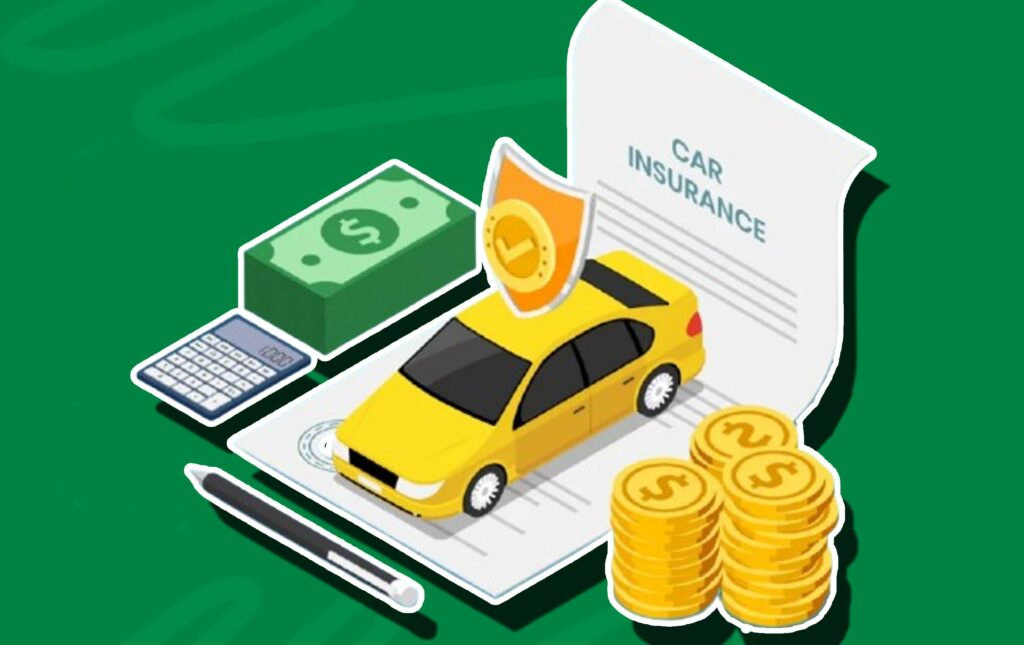Yes, you can get liability insurance on a financed car, alongside other types of insurance such as comprehensive and collision coverage. The level of coverage you will carry for a financed car largely depends on the lender you took out the auto loan from. The majority of lenders often require borrowers to have full coverage on a financed car, and this includes liability insurance.

Liability insurance is typically designed to protect you from financial loss in the event that you are held responsible for any injuries or property damage incurred from an accident that involves your car. Even though many lenders majorly require comprehensive and collision coverage for financed cars, liability insurance is equally important as it protects your assets and future income.
What Type Of Insurance Do I Need For A Financed Car?
To insure a financed car, you will most likely be required to purchase this auto insurance coverage:
- Comprehensive Coverage
- Collision Coverage
- Liability Coverage
- Uninsured/Underinsured Motorist Coverage
- Gap Insurance
Do You Need Full Coverage on a Financed Car?
Most definitely! If you have a financed car, your lender will most likely require you to purchase full coverage, which includes collision, comprehensive. And liability coverage, as well as other types of coverage required by your state law. Some lenders may also require you to purchase additional coverage. This includes uninsured motorist coverage, to protect yourself if you get into an argument with a driver who has little or no insurance.
The major reason why lenders require full coverage on financed cars is typically to protect their financial interests and investments. In a situation where you get into an accident and the car is severely damaged, if you don’t have enough insurance coverage to cover the loss, it can cause financial stress for your lender. Hence, many lenders mandate full coverage on a financed car.
Is Comprehensive and Collision Necessary For a Financed Car?
Typically, for a financed car, lenders usually require comprehensive and collision coverage for the vehicle. The majority of lending institutions require you to have certain types of coverage in order to safeguard their investment in the car and make sure you can afford repairs or replacements in the event of an accident or other occurrence.
Keeping this coverage also offers peace of mind and financial stability. If your car is damaged or totaled in an accident and you don’t have comprehensive or collision coverage. You will have to pay a large amount of money out of pocket, especially if you are still paying loan payments. If you’re thinking about changing your coverage, it’s crucial to go over your financing agreement and speak with your insurance company.
Is Car Insurance Expensive for a Financed car?
When determining how much to charge for coverage, most insurance companies consider several factors. This includes your age, driving history, previous claims, your car’s make and model, and many more. The fact that the car is financed does not impact the cost of your car insurance in any way. Your car insurance may be expensive if the insurance company views you as a higher risk or you are purchasing additional coverage aside from the legally required ones.
Furthermore, financed vehicles are frequently more recent models with potentially higher values, which may raise your car insurance rate. Higher insurance costs may also result from the expense of repairs and replacement parts for more recent models. Therefore, even though insurance companies do not use financed cars as a rule of thumb for car insurance cost. You might have to pay more for insurance on a car that you have financed, primarily because of the additional coverage that lenders and the car itself require.
What Happens If I Don’t Have the Required Insurance on a Financed Car?
When applying for an auto loan, most lenders require you to provide proof of insurance. If you don’t have the necessary insurance for a financed vehicle, such as comprehensive. And collision coverage, it typically exposes you to the risk of breaking your loan agreement with the lender.
Most often, there are serious repercussions attached to not having the required insurance on a financed car, such as paying fines or even the lender buying insurance on your behalf, often at a far higher cost.
Additionally, you run a significant financial risk if you don’t have the required coverage. You would be liable for paying for any necessary repairs or replacements out of pocket in the event of an accident or damage to the car. If you still owe money on the loan, this could put a lot of strain on your finances. You might also lose your car while you try to pay off the debt and fix the damage.
Bottom Line
Although it is technically possible to get liability insurance for a car that has been financed, adding other types of auto insurance policies is a wise financial move. Having just liability insurance may not give you adequate protection in all scenarios. And sometimes it may not satisfy the requirements of your financing arrangement. This is because lenders usually need comprehensive and collision coverage alongside liability coverage to safeguard their investment.
Choosing only liability insurance could expose you to significant monetary damages in the case of an accident or car damage. It is imperative that you thoroughly read your loan agreement. And talk with your insurer about your insurance options in order to make sure you have the right insurance you need to safeguard your financial interests as well as those of your lender.



